Event: Workplace Dialogue and Effective Remedy
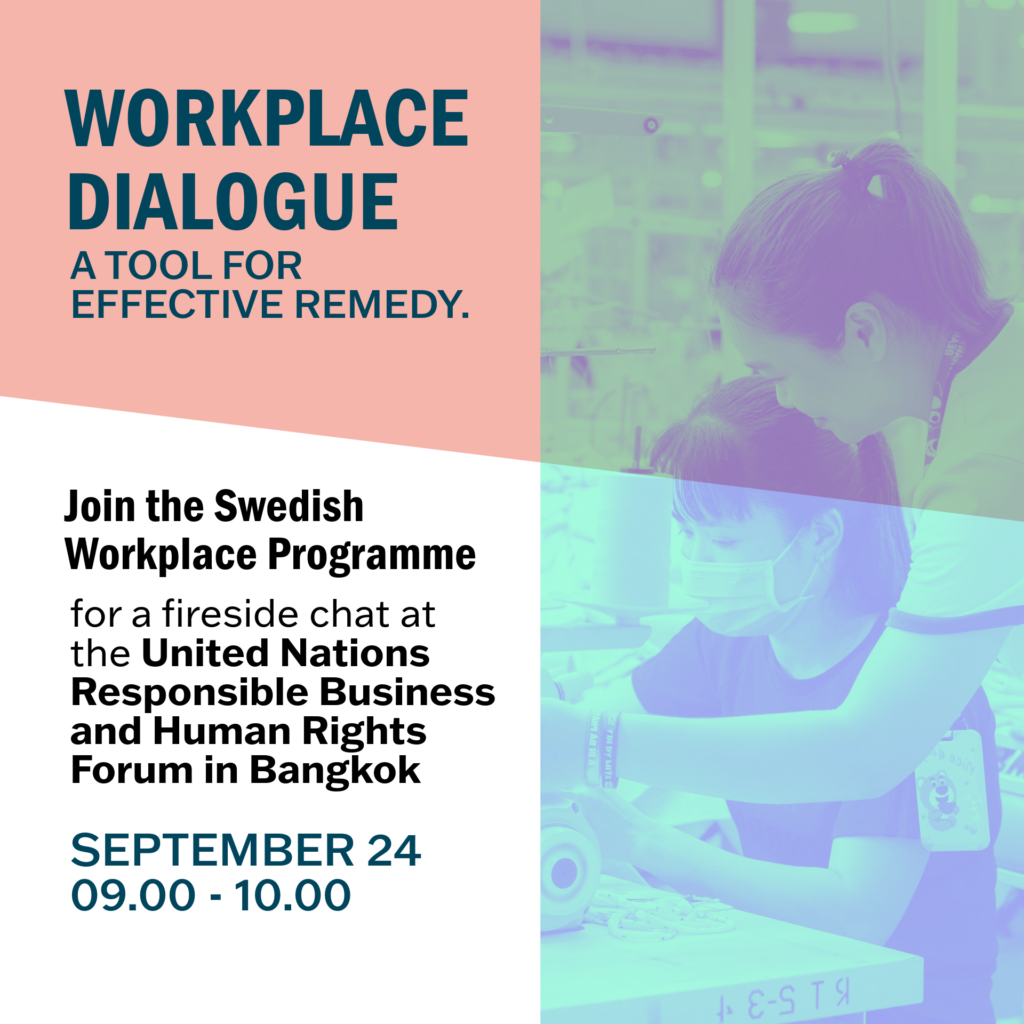
SWP is partcipating at the 6th United Nations Responsible Business and Human Rights Forum in Bangkok! 🗓 Date: September 24th⏰ Time: 9:00 AM (CET+5) Collaboration between employees and managers can facilitate the identification of human rights abuses in the workplace and mitigate potential risks. And effective remedies are more likely when there’s trust, open communication and collaboration between […]
Workplace cooperation model of Swedish companies a practical solution for Colombia?
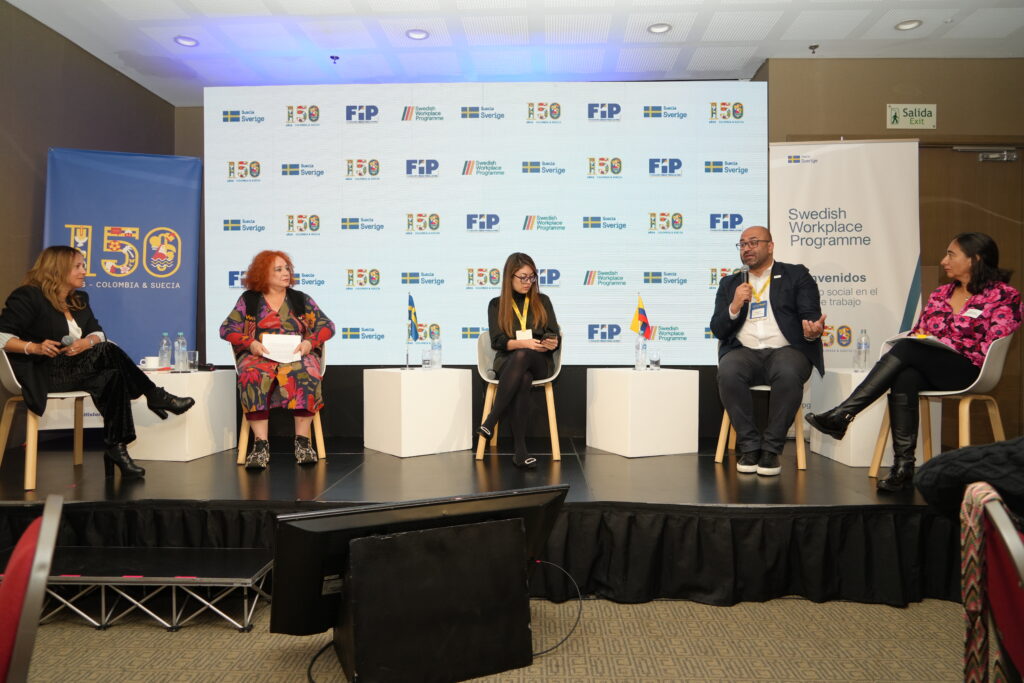
In the framework of 150 years of relations between Sweden and Colombia, our Swedish Workplace Programme and Fundación Ideas para la Paz together with Embassy of Sweden in Colombia hosted a launch event for our joint study: Workplace cooperation – Finding practical solutions for the Colombian context. The study focuses on the impact of SWP’s social dialogue and cooperation […]
Watch the recorded panel discussions about Partnership Driven Workplaces at EXPO 2020
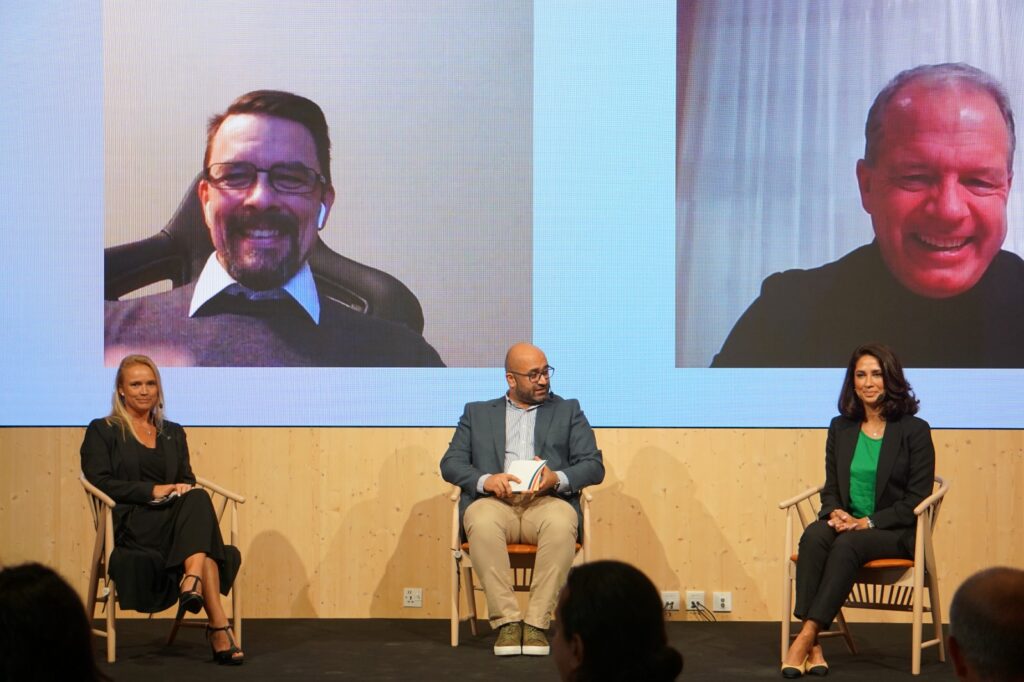
The Swedish Workplace Programme invited business leaders and union representatives to EXPO 2020 to discuss – if the Swedish labour market model can be adapted in different contexts globally. The panelists shared how they apply the model as an approach to contribute to sustainable business and green transition. In the second panel, the SWP team […]
Member companies and IF Metall in the panel at EXPO 2020
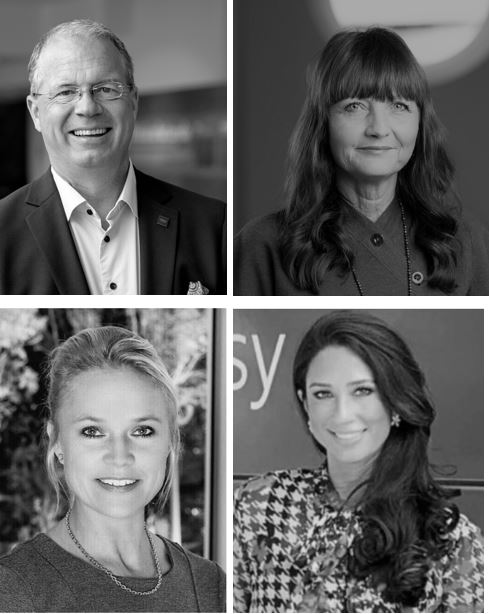
We are pleased to announce that we have four participants in our panel at EXPO 2020, 10 December; Martin Lundstedt CEO of AB Volvo, Marie Nilsson the president of the Swedish union IF Metall, Anna-Karin Rosén Managing Director Saab Ltd Abu Dhabi and Maya M. Moukbel, Head of Innovation Ericsson Middle East and Africa. They will discuss workplace cooperation models in a global context. […]
Time to register to the event at EXPO 2020 about the Swedish Model and workplace cooperation

Very welcome to our event at EXPO 2020 where we explore how the Swedish Labour Market Model creates a “win-win” situation for companies and its employees. Which are the necessary components and can the model even contribute to innovation and sustainable business? The Swedish Workplace Programme arranges panel talks about the model to discuss the […]
Swedish Workplace Programme at EXPO 2020 in Dubai
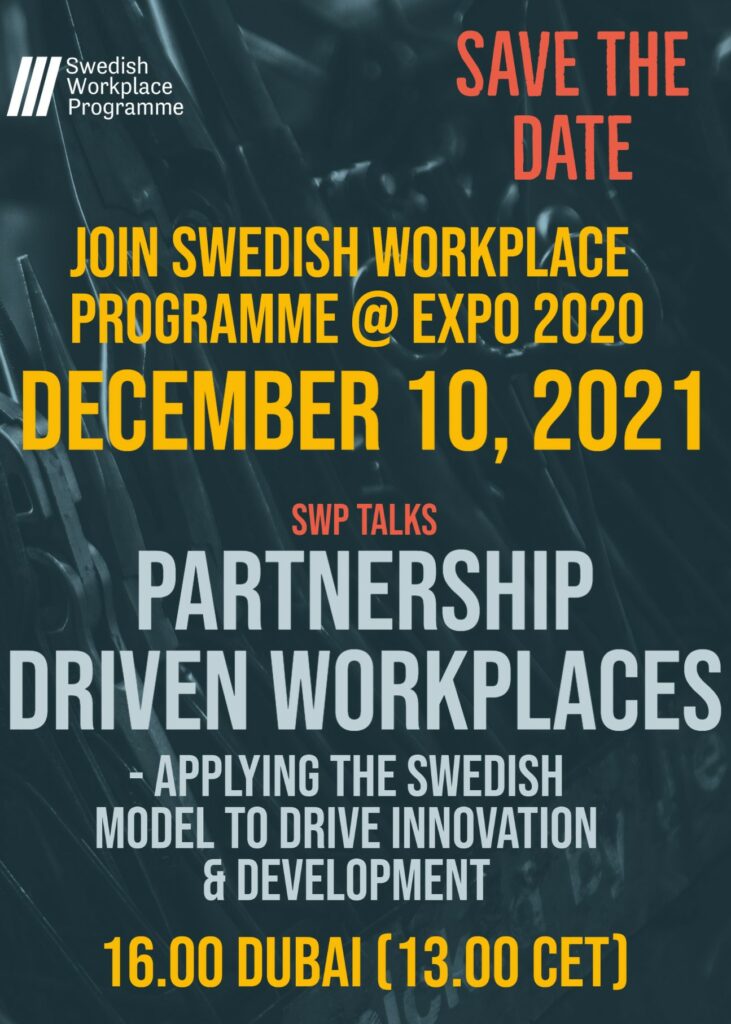
Read more about the event here- SWP @ EXPO 2020
Let’s Meet the Sustainability Impact Accelerator
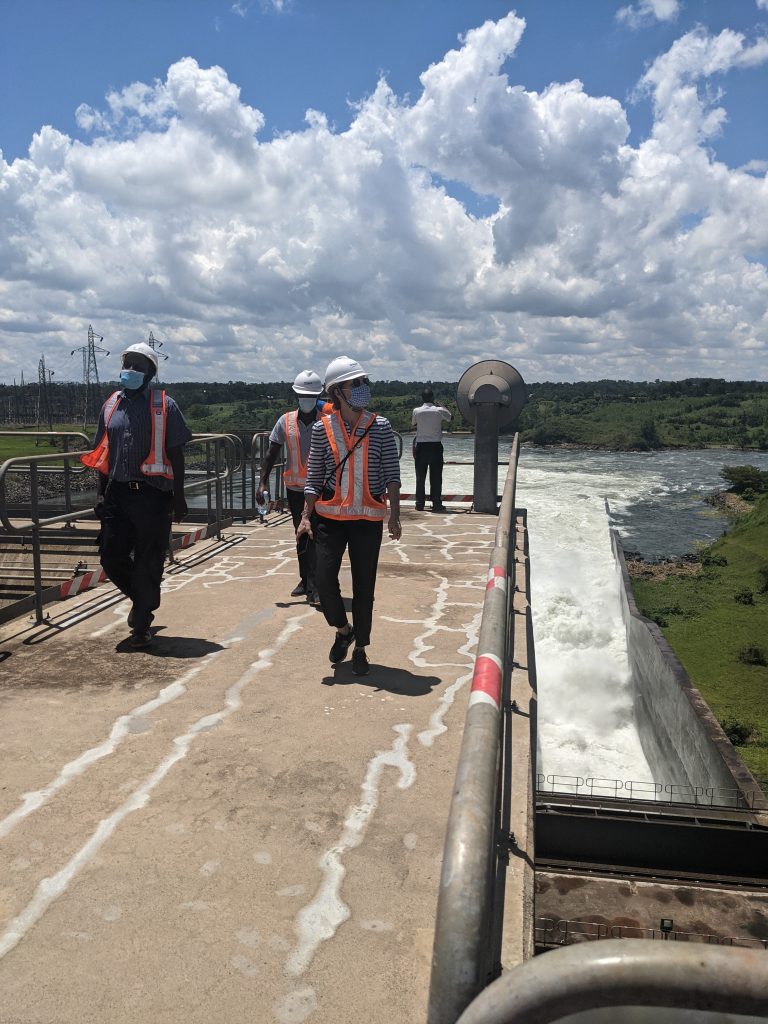
NIR invited both members and other interested companies to meet the Sustainability Impact Accelerator programme staff and learn more in-depth about the programme and how it contributes to sustainable infrastructure projects in developing countries. EKN Exportkreditnämnden, a member and key stakeholder of the programme, also presented their views of how the SIA programme lowers risk and […]
Let’s Talk about Angola

The International Council of Swedish Industry met up with Ewa Polano, Swedish Ambassador to Angola and Per Akerlind, Deputy CEO and Head of Strategic Partnerships and Relations, SEK to learn more about the third largest market in the African continent. Angola has been an important export market to many Swedish companies for decades. Albeit being a complex […]
Lets Talk about Sustainability in mining

NIR had the pleasure to host another Lets Talk -member event together with McKinsey & Company on the topic Sustainability in Mining. A targeted overview of sustainability trends in global mining and valuable insights on ESG-related risk perspectives of corporate stakeholders in Latin America provided the basis for the exchange.
Lets Talk about Nigeria
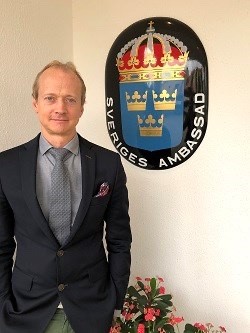
Continuing the Let’s Talk- serie, NIR organised another successful member event; “Let’s talk about Nigeria”, the 7th of October. We proudly presented Ambassador Carl Michael Gräns , Embassy of Sweden in Abuja; Ms. Anthonia Adenaya Huard, Head of West Africa, Business Sweden and Ms. Tariye Gbadegesin; Managing Director & CIO, ARM-Harith Infrastructure Investment. All three speakers sharing their views […]

